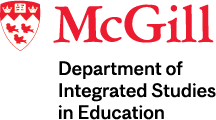 Investigating a unique opportunity: How the role of a teaching assistant supports secondary mathematics pre-service teachers’ development
Investigating a unique opportunity: How the role of a teaching assistant supports secondary mathematics pre-service teachers’ development
Learning to teach is complex. While many life experiences incorporate components of teaching (e.g., giving advice to friends, being a parent), being a classroom teacher is specialized work that requires thoughtful training. Teacher education programs are challenged with providing ample and authentic learning experiences so that pre-service teachers (PSTs) may develop the skills necessary to be effective mathematics educators. Teacher education programs are comprised of in-school practica and coursework. Although practica provide PSTs with valuable on-site experience, as with most teacher education programs, coursework comprises the majority of the PSTs’ program. Secondary mathematics PSTs are required to take mathematics teaching methods courses, however, additional subject-specific learning opportunities are rare in most teacher education programs. This study uses the novel context of PSTs in the role of undergraduate teaching assistants (TAs) in a mathematics teaching methods course to explore PSTs’ development. The TAs will lead class discussions and facilitate “teaching rehearsals” during which the students in the class will practice teaching in front of their peers. Qualitative data in the form of group meetings, TA journals, and TA interviews will be used to explore how the role of an undergraduate teaching assistant serves as an approximation of practice (Grossman & McDonald, 2008) for the secondary mathematics PSTs. Research advocates for teacher education programs to have opportunities for PSTs to practice teaching instead of just talking about teaching. The study will provide an example of a novel opportunity for PSTs to gain additional experiences and encourage teacher education programs to think more broadly about how best to support PSTs’ development.
Reference: Grossman, P., & McDonald, M. (2008). Back to the future: Directions for research in teaching and teacher education. American Educational Research Journal, 45(1), 184-205.
Research assistants: Elaine Ying Syuan Huang, Gurpreet Sahmbi
Research funded by: Tomlinson Project in University-Level Science Education
Contact: Limin Jao, PhD
(514) 398-4527 Ext. 089696 [limin.jao [at] mcgill.ca (email)]
Department of Integrated Studies in Education
3700 McTavish
McGill University
Montreal, Quebec H3A 1Y2
